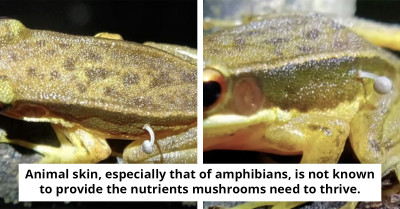Billions Of Crabs Disappear In Alaska—Scientists Reveal The Reasons And What’s Next
The disappearance of billions of crabs from the Bering Sea near Alaska in 2022 shocked scientists and fishermen alike. Scientists clarified that the cause of the crabs' starvation was likely the unusually warm water rather than overfishing.
However, experts noted in a new study that their alarming deaths seem to be only one effect of the tremendous transformation taking place in the region. Apparently, it is true that some areas of the Bering Sea are becoming less Arctic.
According to research conducted by the National Oceanic and Atmospheric Administration, the likelihood of warmer, ice-free conditions in the southeast Bering Sea, which are typical of sub-Arctic regions, is around 200 times higher than it was before humans began burning fossil fuels that warm the Earth. Shocking, right?
Well, the lead author of the study and director of NOAA Fisheries' Kodiak lab in Alaska, Michael Litzow, is studying "how much this Bering Sea ecosystem has already changed from what it was even within the lifetime of one snow crab fisherman." And it doesn't end there.
Additionally, he stated that "we should anticipate many more very warm years" and that there won't be many instances of true Arctic conditions, which are frigid, icy, and dangerous.
Although they can physiologically survive in waters as hot as 12 degrees Celsius, snow crabs, a cold-water Arctic species, often thrive in environments with water temperatures below 2 degrees Celsius.
The shockingly warm water sent the crabs’ metabolism into overdrive

In 2018 and 2019, a particularly lethal marine heat wave affected crabs. The crabs' metabolism increased in response to the warmer water, but there wasn't enough food to sustain them.
As a result of the eventual starvation of billions of crabs, Alaska's fishing sector suffered greatly in the years that followed. According to reports, snow crabs are a commercially significant species that can be valued at up to $227 million annually.
When sea ice melts and ocean temperatures rise, the demise of the Alaskan snow crab heralds a broader ecological shift in the Arctic. According to specialists, the ocean surrounding Alaska is currently losing its ability to support a number of marine species, such as sea lions and red king crabs.
Typically, a temperature barrier in the ocean prevents species like Pacific cod from entering the icy habitat of the crabs. However, Pacific cod were able to access these warmer-than-usual waters during the 2018–2019 heat wave, and they consumed some of the remaining snow crab population.
Dr. Michael Klaper, a renowned physician and advocate for sustainable health practices, emphasizes that climate change is not just an environmental issue but a public health crisis. He notes that rising ocean temperatures can disrupt marine ecosystems, leading to significant declines in species like crabs.
According to Dr. Klaper, proactive measures such as reducing carbon footprints and supporting sustainable fisheries can mitigate these impacts. He advocates for community awareness and education to promote responsible consumption and protection of marine biodiversity.
Snow crabs are a commercially significant species

Robert Foy, director of the Alaska Fisheries Science Center, told CNN that they "have observed species shifts in distribution and mismatches in prey and predators, which have contributed to declines in some species like Pacific cod in the Gulf of Alaska."
Fishery managers are currently trying to incorporate new technologies like drones and artificial intelligence to "more rapidly detect and respond to environmental changes and ecological responses," according to Foy, who is not involved with the study.
Foy also added that these extensive ecosystem changes are posing "new challenges and opportunities for fisheries science and management." In all, we all need to pay attention to climate change.
Understanding Ecosystem Dynamics
Experts in marine biology, like Dr. Andrew Solow, emphasize that shifts in temperature can lead to changes in predator-prey relationships, further exacerbating the decline of species. His research shows that warmer waters not only affect crab populations but can also lead to increased competition for food among marine species.
Dr. Solow suggests that monitoring these ecosystems closely and adjusting fishing practices accordingly could help sustain marine biodiversity. Collaborative efforts among scientists, policymakers, and fishermen are essential for developing adaptive management strategies.
Analysis & Alternative Approaches
The alarming decline of crab populations in Alaska highlights the intricate balance of marine ecosystems and the profound effects of climate change. Research indicates that comprehensive strategies are necessary to address these shifts, as emphasized by experts like Dr. Klaper and Dr. Solow.
By prioritizing sustainable practices and fostering collaboration among stakeholders, we can work towards preserving not only crab populations but the overall health of marine environments. Engaging communities in education and awareness is crucial for fostering a long-term vision of ecological resilience.



